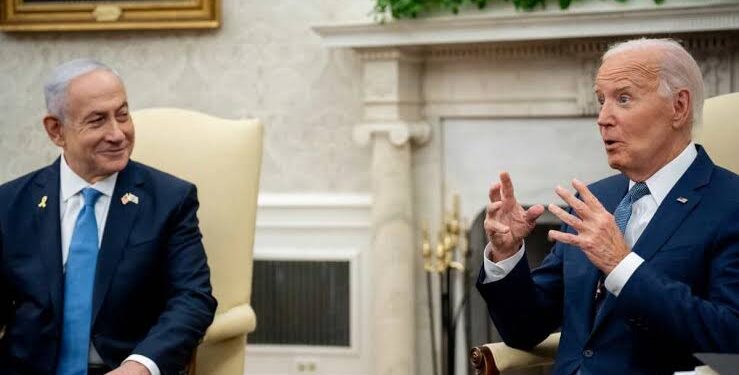United States President Joe Biden has intensified his calls for an immediate ceasefire in Gaza. He held a critical conversation with Israeli Prime Minister Benjamin Netanyahu on Sunday, stressing the urgent need for a truce. The call came as the conflict entered its fifteenth month, with catastrophic impacts on civilians in Gaza. Biden also pushed for the release of Israeli captives held by Hamas, emphasizing the humanitarian and political urgency of the situation.
Talks in Doha: Hopes for a Ceasefire Deal
Ongoing negotiations in Doha, Qatar, have brought together key players, including Israel’s Mossad chief David Barnea and Biden’s top Middle East adviser Brett McGurk. The talks aim to finalize a phased ceasefire agreement, first introduced by Biden in May 2024 and endorsed by the United Nations Security Council. Despite progress, disagreements persist, delaying a potential deal.
Jake Sullivan, Biden’s national security adviser, expressed cautious optimism, saying, “We are very, very close. Yet being very close still means we’re far because until you actually get across the finish line, we’re not there.”
Contentious Points in the Agreement
Core issues in the negotiations include the release of hostages held by Hamas, the release of Palestinian prisoners, and the scale of Israeli troop withdrawal from Gaza. Netanyahu has shown willingness to consider only the first phase of the agreement, which includes a temporary halt in fighting and limited prisoner exchanges. Hamas, however, demands a complete withdrawal of Israeli forces from Gaza.
Israeli far-right politicians have strongly opposed the ceasefire discussions. Members of Netanyahu’s coalition have threatened to reject the deal, arguing that it compromises Israel’s security. Despite these challenges, mediators in Doha remain hopeful about finalizing the agreement.
Humanitarian Catastrophe in Gaza
The siege on northern Gaza has entered its 100th day, leaving a trail of devastation. More than 46,000 Palestinians have been killed, most of them women and children, according to medical sources. Over 90 percent of Gaza’s population has been displaced, facing dire humanitarian conditions.
The region’s infrastructure lies in ruins, with hospitals struggling to function amidst the relentless Israeli bombardment. Medical teams report that at least 5,000 individuals remain unaccounted for, feared to be buried under rubble.
Biden’s Political Deadline
Biden’s push for a ceasefire comes as President-elect Donald Trump prepares to assume office on January 20. Analysts speculate that Biden is keen to resolve the crisis before Trump’s inauguration to avoid complicating the transition. Trump has historically maintained strong support for Israel and may adopt a different approach to the conflict.
Global Reaction and Pressure
The international community has repeatedly condemned the violence in Gaza. United Nations experts have labeled Israel’s actions as potential “genocide,” urging accountability for the widespread destruction and loss of civilian life. Despite these calls, Israel remains steadfast in its objective to dismantle Hamas’s military infrastructure.
As the talks in Doha continue, the world watches anxiously. The success or failure of the negotiations will have profound implications, not just for Gaza, but for the broader Middle East.
Related Stories:
Gaza ceasefire talks 90% complete, Palestinian official tells BBC
United States vetoes Gaza ceasefire resolution at Security Council for the Fourth Time
Diplomatic Push for Gaza Ceasefire Intensifies as Blinken Visits Israel
















